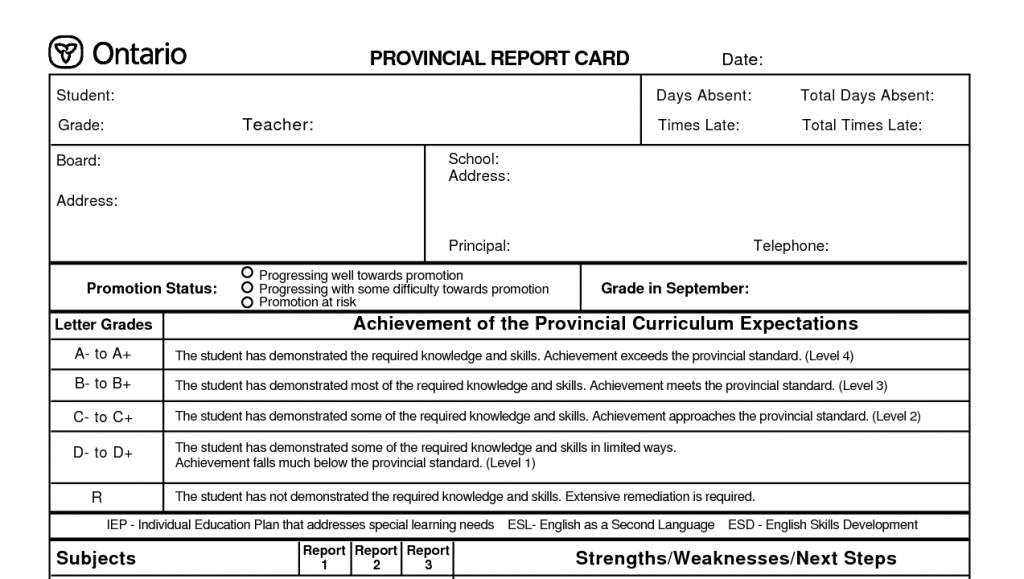The countdown to summer means that it’s almost report card time. Many parents have high academic expectations of their children, so when the grades on a final report card do not meet those expectations, it’s easy to overreact. So here are strategies you can use to make report season a more enjoyable experience for all parties and lead to growth, not hurt feelings.

1. Stay Calm
As a parent, your first reaction to a bad report card or bad grade may not be the right one. Your impulse may be to yell or punish your child, but remember, they may be as or more upset than you are about their poor grades. Your child’s own feelings about their academic performance may be enough punishment and your reaction may further demoralize and demotivate them. In other cases, it may seem like your child does not care about their grades or is defiant. This is normal also. Regardless of your child’s reaction, take a deep breath and stay calm to control your own reaction.
2. Read the Whole Report Card
It is tempting to scan a report card and immediately point out any flaws. However, teachers spend time writing comments on what parents and children should focus on as well as rating different learning skills for a reason, so it is important to read the whole report card as this is how you will be able to judge what areas need improvement and how. Here are a couple examples:
- If the rating for cooperation or team engagement is low, this may indicate that the child may have anxiety or difficulty with social skills.
- If the rating for initiative or problem solving is low, this may indicate a limitation of cognitive executive functions.
- If the comments section indicates poor attention, this may indicate an attention deficit.

3. Talk to Your Child
It is important for you to review the report card with your child. Ask them how they feel and reassure them that any bad grades or poor performance does not mean failure. This is a good opportunity for you to also ask your child what worked and what didn’t – give them a chance to explain. Perhaps it was their organization skills? Was there a conflict with the teacher? Did they understand the assignment expectations?
4. Move Forward with a Positive Outlook
In addition to discussing the results, it is important to discuss future goals for improvement. Understand that you cannot undo bad grades. You can only learn from past mistakes, move forward from here, and use this report card as an indication of your child’s strengths and weaknesses. Use the report as a guide for developing a strategy for success and maintain a positive outlook to encourage and motivate your child.
5. Identify the Gap
It is important to note that there are many different factors that can cause bad grades, many of which have nothing to do with your child’s ability or intelligence. For example:
- If there are significant changes from your child’s previous report card, this may be a sign of an emotional problem. Were there any significant family, relationship or social changes in your child’s life? Have they undergone any transitions?
- If all of your child’s grades are good except in one subject (such as math), it may suggest that the child has a learning disability, in which case a psychoeducational assessment will be required for them to receive accommodation at school.
Overall, if bad report cards persist or there is a sudden change that you cannot figure out, it is time to seek a consultation with a school psychologist. If your child attends public school, there may be one available for you to meet with depending on their availability. If you are looking for more immediate answers, a private school psychologist can help determine what your child’s strengths and weaknesses are and create a roadmap for success. Whatever you decide to do, it is the best to start planning now so that you have a plan of action for September!
